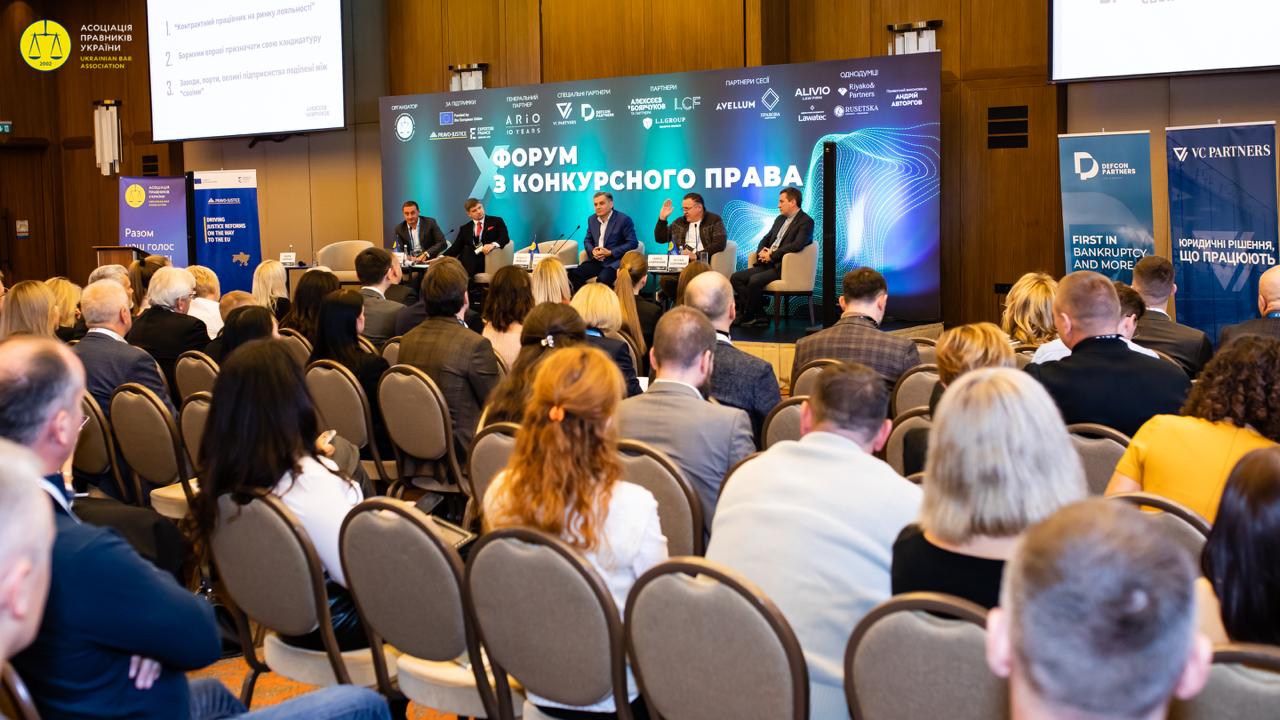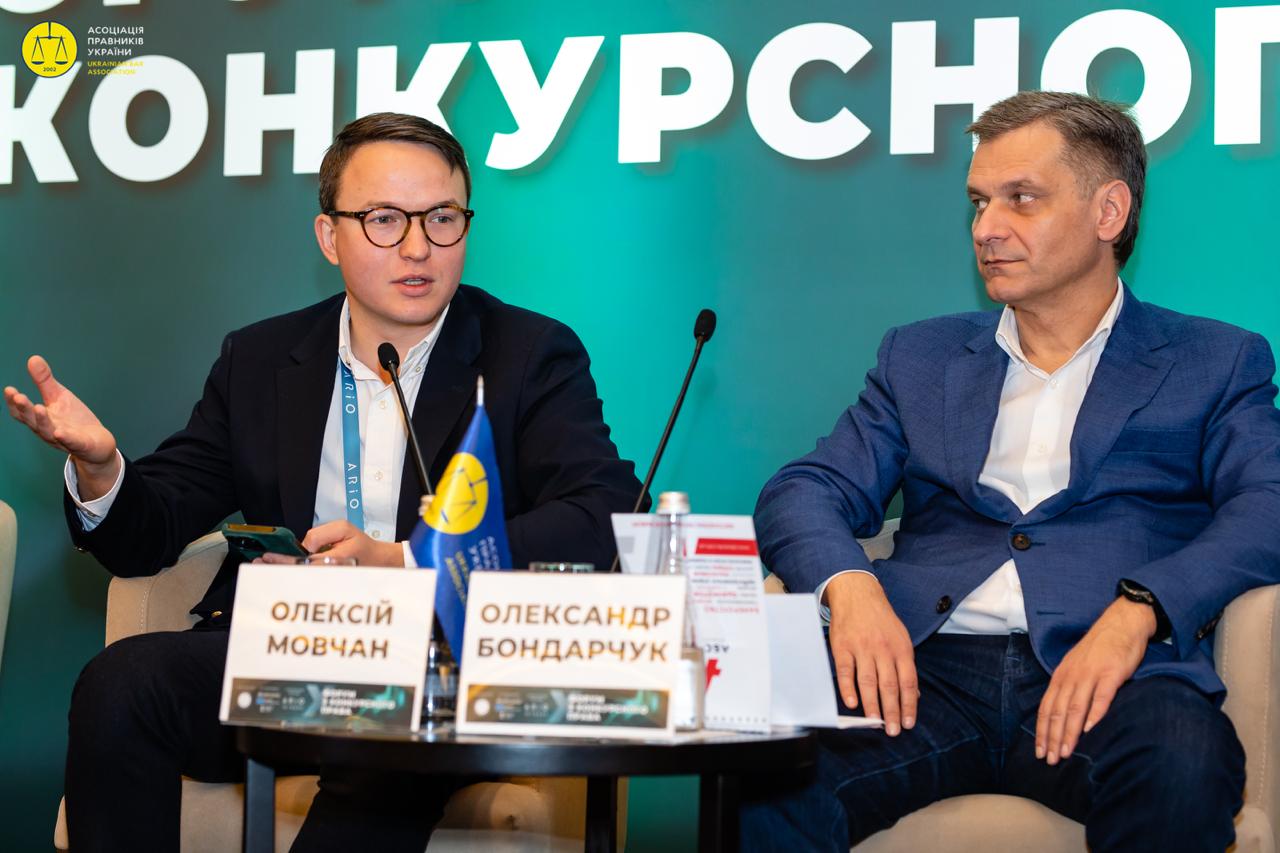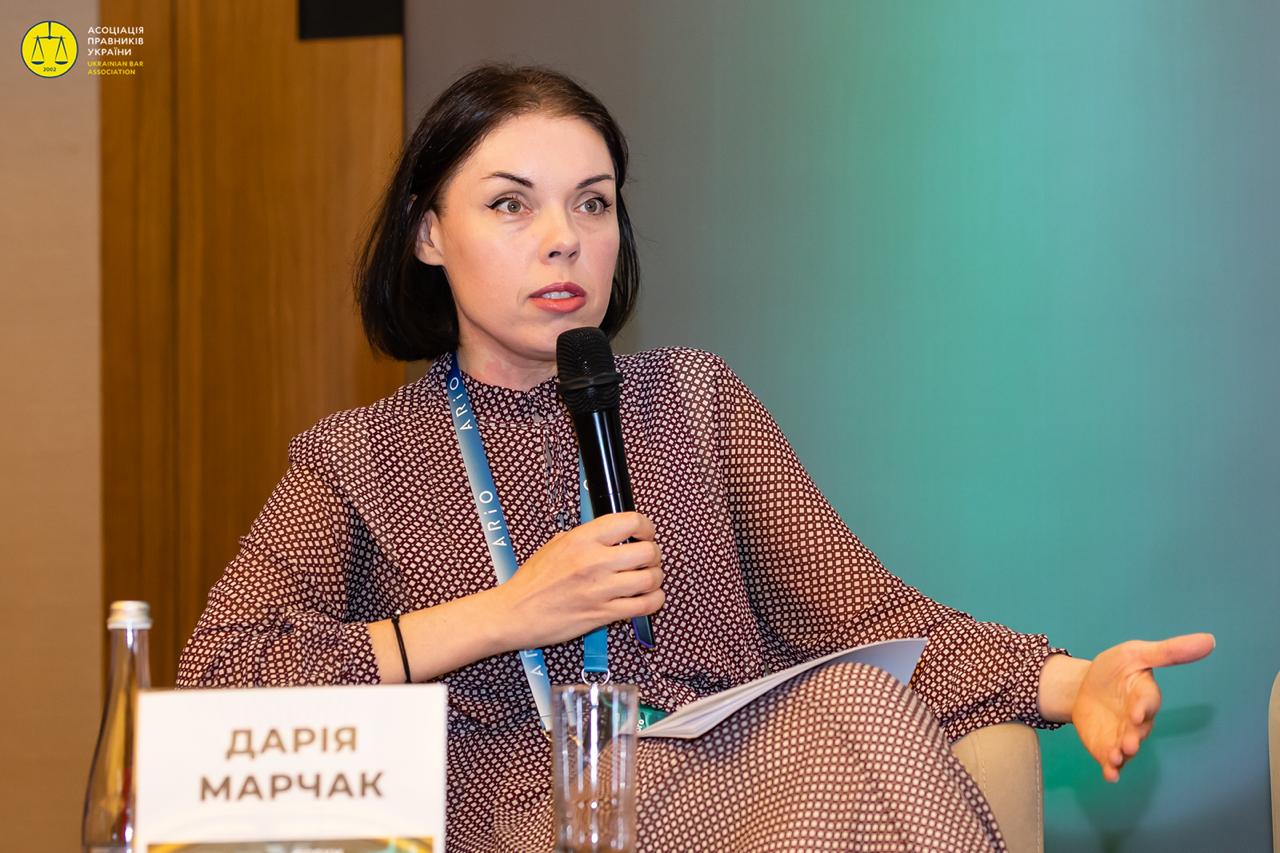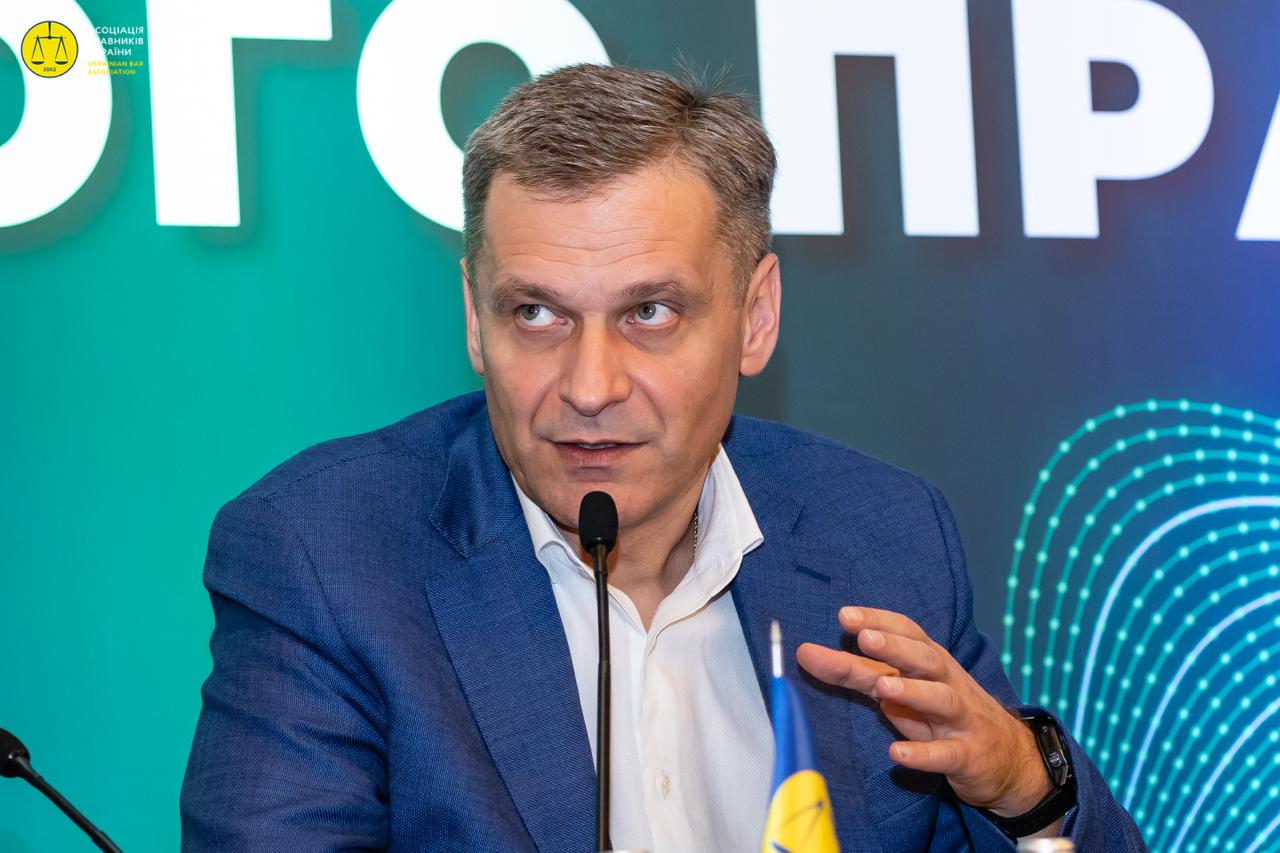Anniversary Forum on Bankruptcy and Restructuring was held with the support of EU Project Pravo-Justice

On 17 October, the X Forum on Insolvency Law, organised by the Ukrainian Bar Association with the support of EU Project Pravo-Justice to discuss current challenges and trends in the field of bankruptcy and restructuring, took place in Kyiv.
Mykola Stetsenko, President of the Ukrainian Bar Association, noted that the forum had become a common space for uniting the professional community, shaping the content and areas of development of bankruptcy law.
“In times of war, bankruptcy proceedings are of particular importance as one of the key tools for rebooting Ukraine’s economy. For the past 10 years, this forum has been bringing together leading experts in this field: insolvency practitioners, private enforcement officers, judges, lawyers, representatives of the public sector and the banking community, and international experts," said Mykola Stetsenko.

Iryna Zharonkina, Enforcement and Protection of Property Rights Component Lead at EU Pravo-Justice Project, said that development and changes in the areas of competition law, insolvency and enforcement of judgments were one of the components of justice sector reform. She noted that those processes were interconnected, as they ensured the restoration of property rights and trust in the judicial system.
“I can state, without any exaggeration, that this forum is an important platform for discussing the most important issues in the field of insolvency, bankruptcy and restructuring,” said Iryna Zharonkina. As part of the panel on enforcement proceedings and individual bankruptcy, she also analysed what changed in the field of enforcement proceedings in the context of the implementation of the Ukraine Facility Plan and the Rule of Law Roadmap.

Oleksii Movchan, Deputy Chairman of the Verkhovna Rada Committee on Economic Development, outlined the impact of the insolvency framework on the country’s economic development and its investment attractiveness and spoke about the vision/obligations of legislators to further reform this area.
“The EU’s Ukraine Facility Plan, a financial support programme for Ukraine, includes a requirement for a simplified bankruptcy procedure for micro and small businesses. In the context of war and post-war recovery, this toolkit is important,” said the MP.

Dariia Marchak, Deputy Minister of Economy, Environment and Agriculture of Ukraine, noted a number of systemic problems in the field of bankruptcy, such as moratoria and asset management in the temporarily occupied territories. In addition, she outlined positive changes in the insolvency sector and expected amendments to the Cabinet of Ministers of Ukraine Resolution No. 865.
“Ukraine is developing a sustainable practice in the field of bankruptcy. We see which rules work and which do not. Previously, seizure or other restrictions would block the procedures, but now they do not. Even when seized (except for criminal forfeiture), the sale of a bankrupt’s property at an auction is possible. This is an important step forward,” said Dariia Marchak. The expected changes include a differentiated guarantee fee (10% at the first auction, 20% at the second one); updated framework for determining the winners and criteria of successful bidding. According to her, the new rules are expected to speed up procedures, increase the number of participants, and provide larger payments to the creditors.

Oleksandr Bondarchuk, Head of the Ukrainian National Insolvency Trustees Association, outlined the key challenges for the community: maintaining professional independence and expanding the scope of activities. Insolvency practitioners are now involved in the temporary administrations of non-bank financial institutions and cooperate with financial market regulators. The UNITA also promotes the participation of BTs in the management of ARMA assets and enterprises transferred to the State Property Fund under the sanctions policy.
Yulian Khorunzhyi, Senior Partner at Ario Law Firm, shared the first practical experience of applying the preventive restructuring mechanism.
“As of today, six preventive restructuring procedures have been opened in Ukraine. Given the terms (starting from 1 January 2025), this is quite good. Of course, the open procedures are not the same as approved preventive restructuring plans, but there is first experience, both positive and negative,” he said.
During the four sessions of the Forum, the participants discussed key trends in the development of the insolvency system and the enforcement of court decisions, practical aspects of the application of the updated legislation, and the professional independence of bankruptcy trustees and enforcement officers. Particular attention was paid to the digitisation of procedures, implementation of preventive restructuring, unity of judicial practice and European integration benchmarks in the field of competition law.
When summing up the event, the organisers noted that it is the joint dialogue between the state, the professional community and international partners that is the key to the effective transformation of the insolvency system in Ukraine.